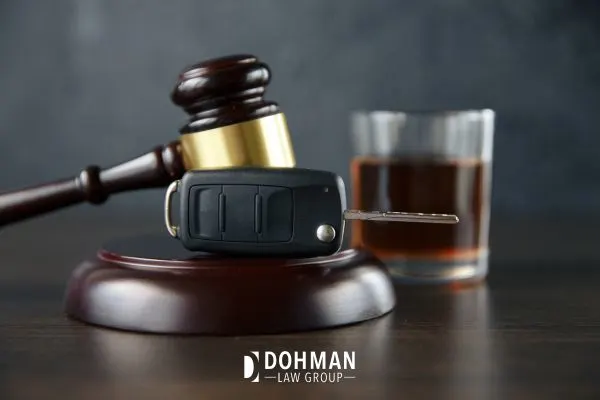- Understanding Illinois Traffic Tickets
- Types of Traffic Violations
- Impact of Traffic Violations on Driving Record
- Duration of Traffic Tickets on Record
- The Illinois Points System
- License Suspension and Revocation
- Strategies to Mitigate Impact
- Legal Options for Record Management
- When to Consult a Legal Professional
- Long-Term Effects of Traffic Violations
- Conclusion
Navigating the complexities of Illinois traffic law can be a daunting experience, especially when you’re concerned about how a traffic ticket will affect your driving record. It’s not just about the fine; it’s about the long-term impact on your driving privilege and, often, your auto insurance premiums. So, how long do traffic violations stay on your record in Illinois?
Knowing how long a traffic violation stays on your record is essential for Illinois drivers. The duration varies by the offense’s severity. Minor violations may be removed after a few years, while serious offenses can stay indefinitely. This guide outlines Illinois traffic laws and the consequences of tickets. For serious charges, consulting a qualified attorney is highly recommended.
Understanding Illinois Traffic Tickets
In Illinois, a traffic ticket is a notice from a law enforcement officer that you have allegedly violated the rules of the road. These citations are more than just a piece of paper; they are formal charges that can have significant legal and financial repercussions.
When you receive a traffic ticket, you have several options: you can pay the fine, which is an admission of guilt, or you can go to traffic court to contest the violation. The course of action you choose directly impacts what appears on your driving record.

Types of Traffic Violations
Traffic violations in Illinois are categorized by severity. The most common are petty offenses, such as a minor speeding ticket (driving 1-25 miles per hour over the speed limit), failure to yield, or improper lane usage. These typically result in fines but can also lead to points on your record.
More serious offenses, like speeding 26 mph or more over the limit, can be classified as a misdemeanor. The most severe traffic offenses, such as reckless driving or driving under the influence (DUI), are criminal charges that carry a much higher criminal penalty, including potential jail time and a lengthy license suspension.
Impact of Traffic Violations on Driving Record
Your driving record is a history of your driving habits maintained by the Illinois Secretary of State. Every time you are convicted of a moving violation, whether it’s in Cook County, DuPage County, or anywhere else in the state, that conviction is reported to the Secretary of State and recorded on your driving record. This record is accessible to various entities, including insurance companies and potential employers, and it can affect your driving privilege for years to come.
Duration of Traffic Tickets on Record
The length of time a traffic ticket stays on your record is a primary concern for many drivers. Here is a breakdown based on the type of offense:
Standard Violations
For most common traffic tickets or moving violation convictions, like speeding or running a red light, the conviction will typically stay on your Illinois driving record for four to five years from the date of the conviction. The Illinois Secretary of State has the discretion to remove these offenses during that timeframe, but you should not count on it.
Serious Offenses (e.g., DUIs)
Serious traffic offenses have a much longer-lasting impact. Convictions for driving under the influence (DUI) and other alcohol or drug-related offenses are considered the most severe. These convictions will permanently stay on your Illinois driving record. There is no expungement or sealing of DUI convictions from your driving record, even with a pardon. They are a permanent part of your public driving record. Additionally, offenses that result in a license suspension or revocation will stay on your record for at least seven years from the date your license is reinstated.

The Illinois Points System
The Illinois Secretary of State uses a point system to monitor drivers. Points are not assigned when a ticket is issued; they are only assigned upon conviction.
How Points Are Assigned
Each moving violation has a specific point value. For instance, speeding 1-10 mph over the speeding limit may be 5 points, while speeding more than 25 mph over the limit can result in a significant 50 points. Other violations like reckless driving carry 55 points, and driving with a suspended license is 50 points. A non-moving violation, like a parking ticket or an offense related to your license plates or ID cards, does not add points to your record.
Consequences of Accumulating Points
The accumulation of points is a major concern for drivers, especially those with a Commercial Driver’s License (CDL) or teen drivers. Accumulating too many points can lead to a license suspension or revocation. For drivers over 21, three convictions for moving violations within a 12-month period can lead to a suspension. For drivers under 21, the threshold is even lower.
License Suspension and Revocation
A license suspension is a temporary loss of your driving privileges, while a revocation is a complete termination. The length of a suspension depends on the number of points and convictions on your record.
For example, accumulating 45 to 74 points can result in a two-month suspension. A statutory summary suspension is a separate, immediate suspension that applies to drivers arrested for a drunk driving charge who fail or refuse a chemical test. This is often handled separately from the criminal charge itself.
Strategies to Mitigate Impact
The best way to manage a traffic ticket is to prevent a conviction from ever appearing on your record.
Exploring Court Supervision
Court supervision is a powerful tool in Illinois traffic law. If you are granted court supervision, you are not convicted of the offense. Instead, you pay a fine and complete a period of supervision, which may include traffic safety school or a safe driving program. If you complete the supervision period without any new violations, the charge is dismissed, and it will not appear as a conviction on your public driving record. This prevents points from being added and can help keep your insurance rates from skyrocketing. However, this is not an option for every charge, and you are typically limited in how often you can receive it.
Traffic School and Point Reduction
In some cases, a judge may order you to attend traffic safety school as a condition of court supervision. This is often an online course that teaches traffic rules and defensive driving techniques. Completing the course is a key step to keeping the conviction off your record and preventing negative impacts on your auto insurance and insurance provider.
Contesting Traffic Violations
If you believe you were wrongly cited, you have the right to contest the ticket in traffic courts. This involves pleading not guilty and presenting your case to a judge. While this can be challenging, it is often a worthwhile option if the evidence is on your side. An experienced attorney can help you navigate this process.

Legal Options for Record Management
For past offenses, there are limited options for record management.
Expungement of Traffic Violations
Expungement is the legal process of destroying records of an arrest or a conviction. While expungement is possible for some criminal records in Illinois, it is generally not an option for minor traffic violations. For a traffic offense to be eligible for expungement or sealing, it must be a criminal offense (like a misdemeanor or felony) and not a simple petty offense. Even then, the Secretary of State’s records are not typically expunged.
Sealing Records
Sealing records is a process that closes criminal records to the public. As with expungement, it is not an option for minor traffic violations. Sealing is generally reserved for more serious criminal cases. Furthermore, as with expungement, a court order to seal a record does not affect the records maintained by the Secretary of State, which are what most insurance companies and employers check.
When to Consult a Legal Professional
Dealing with a traffic ticket, especially a serious one, can have severe consequences. A single conviction can lead to a significant increase in your insurance premiums. For this reason, consulting with a legal professional is a smart move. An attorney can review your case, explain your options, and represent you in court. They can negotiate for court supervision, challenge the validity of the ticket, or work to reduce a criminal charge.
If you are facing a driving criminal offense, such as a drunk driving charge, a lawyer is essential. They can help you with the statutory summary suspension process and guide you through the complexities of obtaining a restricted driving permit or installing a breath alcohol ignition interlock device, a device that ensures your blood alcohol content isn’t over the legal limit. Whether you are in Lake County or Rolling Meadows, a local traffic ticket attorney can provide invaluable assistance.
Long-Term Effects of Traffic Violations
The repercussions of a traffic conviction extend far beyond the immediate fine.
Impact on Insurance Rates
A conviction for a moving violation, especially a serious one, will almost certainly lead to a spike in your insurance rates. Insurance companies view convictions as an indicator of risky behavior, and they will adjust your insurance premiums accordingly. The higher rates can last for the entire period the conviction is on your record (4-5 years or more), costing you thousands of dollars over time.
Effects on Future Driving Privileges
Accumulating multiple convictions, even minor ones, can make you a target for future police scrutiny and could lead to a future suspension or revocation. A clean driving record is a valuable asset that protects your driving privilege and ensures you can continue to get to work, school, and other important destinations.
Conclusion
In Illinois, the answer to the question “How long do traffic violations stay on your record in Illinois?” is: it depends. Minor moving violations typically stay on your record for four to five years, but serious criminal offense convictions, like a DUI, are permanent and have severe consequences. While the penalties may seem minor at first, the long-term impact on your finances and driving privilege can be substantial.
Taking a proactive approach by seeking court supervision or challenging the ticket can save you from significant headaches down the road. For many drivers, the best decision is to reach out to a qualified attorney for a free initial consultation and take a strategic approach to protect their record. To schedule your consultation, please call us today at (847) 616-9993


